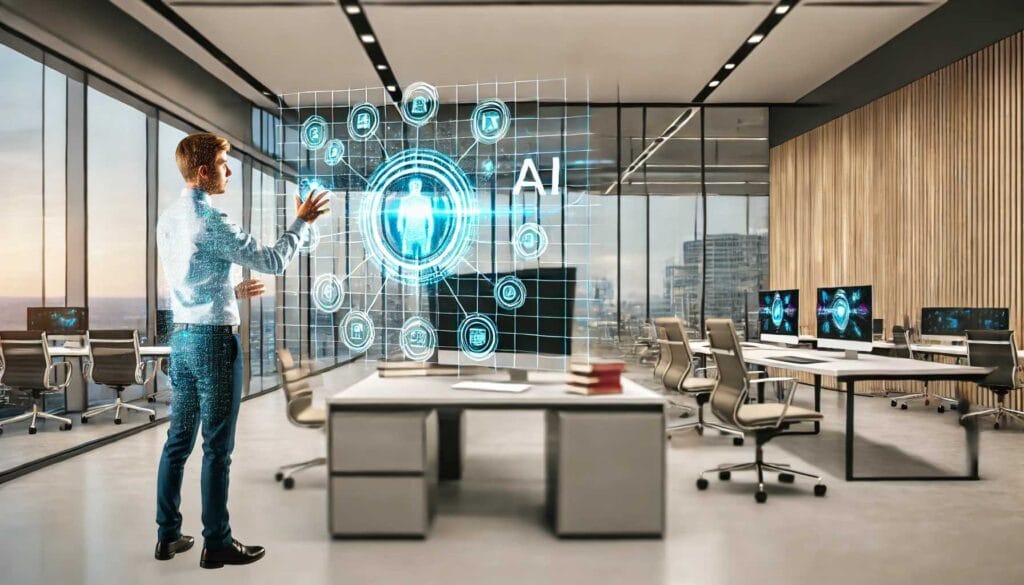Advancements in AI in 2025 and Their Impact on Jobs

Introduction
The field of Artificial Intelligence (AI) has made significant strides in recent years, with advancements in machine learning, natural language processing, and automation revolutionizing industries across the globe. As we look toward 2025, AI is expected to become even more integral to the global economy. This article explores the anticipated developments in AI and their potential impact on the workforce.
AI in 2025: Key Advancements
- More Sophisticated Machine Learning Models In 2025, we can expect machine learning algorithms to become more refined, with the ability to handle complex tasks more efficiently. This includes advancements in deep learning, which will allow AI to better mimic human cognitive processes. AI systems will be able to interpret and analyze vast amounts of data in real time, making decisions and predictions with greater accuracy.
- Human-AI Collaboration By 2025, AI is likely to be integrated more seamlessly into everyday work environments. Human-AI collaboration will enable workers to use AI tools to enhance their productivity, automate routine tasks, and make data-driven decisions. For instance, AI could assist in creating personalized learning paths for employees or predicting market trends in real-time for business executives.
- Advances in Natural Language Processing Natural Language Processing (NLP) has already shown great potential in the development of chatbots, voice assistants, and translation tools. By 2025, these systems will become even more intuitive and capable of understanding context, tone, and emotion. This will allow AI to provide more human-like interaction, improving customer service, healthcare, and even creative industries like writing and content generation.
- Autonomous Systems and Robotics The rise of autonomous systems, including self-driving vehicles, drones, and robots, is expected to accelerate by 2025. These technologies will revolutionize logistics, manufacturing, and healthcare sectors, where robots may assist in surgeries or handle routine warehouse tasks.
- AI Ethics and Regulation With AI’s rapid development, there will be an increased focus on AI ethics, privacy, and governance. Governments and organizations will implement frameworks to ensure that AI operates within ethical boundaries, particularly in sensitive areas like healthcare, criminal justice, and finance.
Impact of AI on Jobs
The influence of AI on the job market will be multifaceted, with both positive and negative implications.
- Job Creation and Transformation Contrary to the common fear that AI will lead to widespread unemployment, it is more likely that AI will lead to job transformation. New roles will emerge in fields like AI programming, data science, and AI ethics. Employees in various industries will need to adapt to AI-driven processes, requiring reskilling and upskilling.For example, in healthcare, AI can assist doctors in diagnosing diseases faster and more accurately, but healthcare professionals will still be needed to provide patient care and make critical decisions. In manufacturing, robots will take over repetitive tasks, but there will still be a need for human oversight, machine maintenance, and optimization.
- Automation and Job Displacement While many jobs will be created, others will inevitably be displaced by automation. Routine and manual jobs, especially those in industries like retail, logistics, and customer service, are most at risk. AI-powered systems can handle tasks such as inventory management, telemarketing, and even some aspects of data entry, which may lead to a reduction in demand for these roles.However, this displacement can be mitigated through reskilling programs, government intervention, and the development of new industries that require human oversight and creativity.
- Remote Work and AI Tools The COVID-19 pandemic accelerated the shift to remote work, and by 2025, AI tools will be a central component of remote and hybrid work environments. AI will help businesses manage teams, track performance, and even improve collaboration across geographical boundaries. For example, AI-driven productivity tools will allow remote workers to better manage their time and collaborate more effectively.
- Personalized Job Matching One of the exciting possibilities AI offers is the ability to match individuals with the right jobs based on their skills, experiences, and preferences. Advanced AI systems will analyze resumes, job descriptions, and even personal traits to provide personalized job recommendations, helping to reduce mismatches and improve overall job satisfaction.
- AI in Creative Fields In creative industries like writing, art, and design, AI will play a dual role. On one hand, AI can assist in generating content and ideas, automating mundane tasks, and increasing productivity. On the other hand, it may also raise concerns about the authenticity and originality of AI-generated work, which could impact professionals in these fields. Writers, artists, and designers will need to find ways to collaborate with AI tools to enhance their creativity rather than being replaced by them.
Conclusion
AI’s rapid evolution by 2025 will undoubtedly have a profound impact on the job market. While some jobs will be automated, new opportunities will emerge, particularly in AI-related fields. Workers who adapt to these changes, upskill, and embrace human-AI collaboration will be better positioned for success. As AI continues to reshape industries, governments, businesses, and educational institutions will play a crucial role in ensuring that workers are prepared for the jobs of the future.
Source : Medium.com




